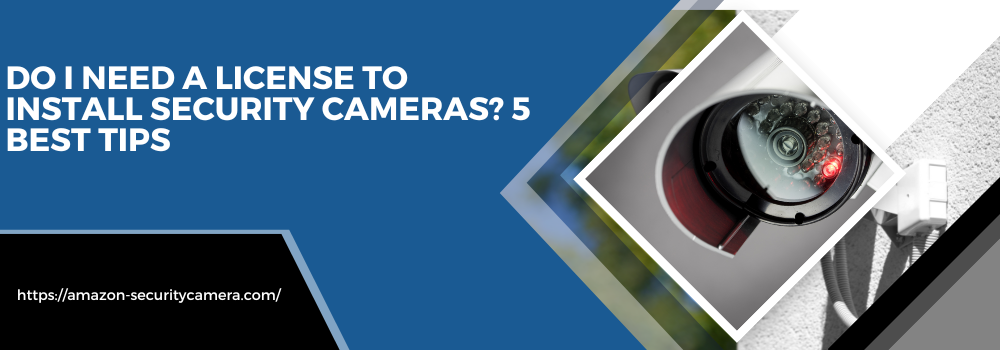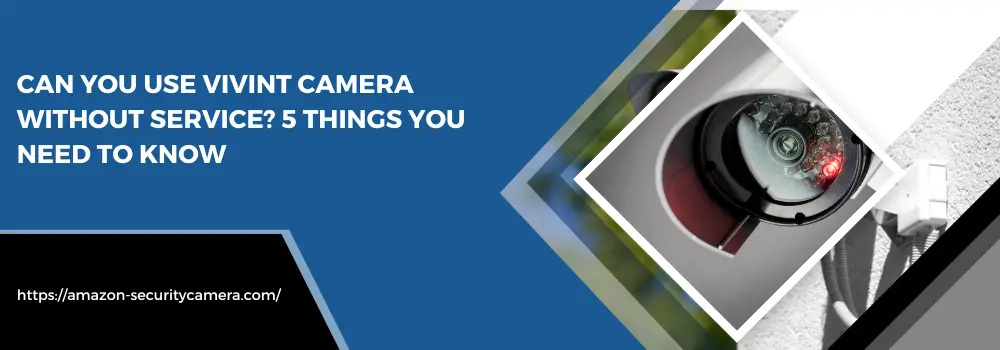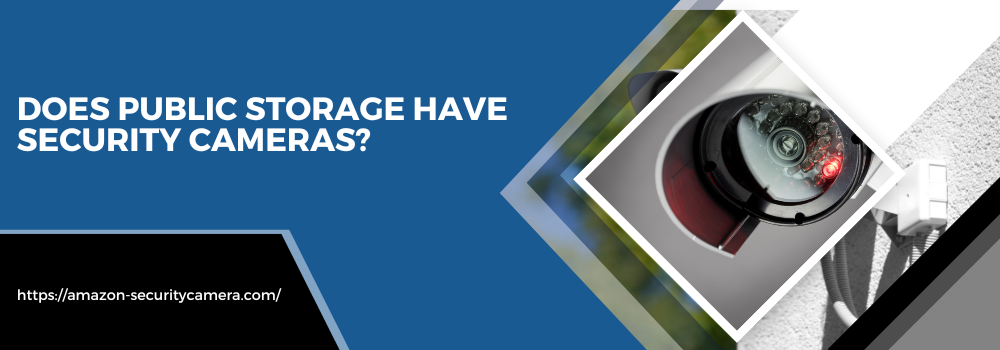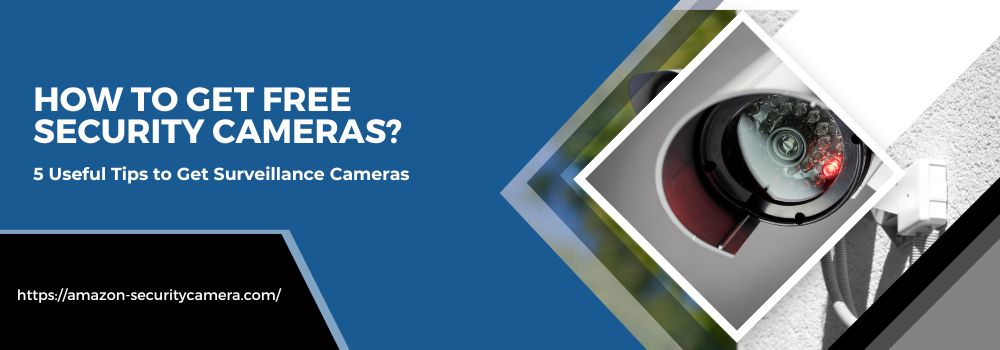Do I need a license to install security cameras? Are you looking to increase security in your business or home? Then installing security cameras may be the answer. But before you do, there’s one important question you must ask yourself – do I need a license to install security cameras? Knowing whether or not it’s necessary is vital for running the most efficient and compliant operation possible.
The answer to this question may vary depending on your location and the type of security cameras you plan on installing. In some cases, a license may be required for certain types of surveillance systems, while in others it may not be necessary at all.
In this blog post, we’ll explain how having proper licensing can benefit both shopkeepers and electricians when it comes to installing security cameras on premises. We hope that by the end of this article, you’ll gain a better understanding of what licenses might be required depending on where and how the camera is being installed.
Do I need a license to install security cameras?
Read an article about Do I need a license to install security cameras.
Read another article about How far away can a wireless security camera work? 5 Best Methods
Table of Contents
Understanding the legality of security cameras in your area
The first step towards understanding the legal implications of installing security cameras is acquainting yourself with local laws and regulations. In some regions, surveillance systems fall under strict legal scrutiny to protect individual’s privacy rights. Strict guidelines govern where cameras can be pointed and whether audio recording is permissible.
In contrast, other regions may have more lenient rules, allowing for widespread use of surveillance technology without significant restrictions. Irrespective of the area’s legal landscape, it’s crucial to understand the local regulations before installing any security system. This will ensure compliance and avoid potential legal consequences.
Lastly, it’s also important to consider ethical implications beyond legal requirements. Just because something is legally permitted doesn’t mean it’s ethically right. Respect for individuals’ privacy should always be a top priority when making decisions about security camera installation.
What constitutes a “security camera” and what is considered surveillance equipment
A “security camera” is a device that captures video footage primarily to ensure the safety of a specific area. These cameras are typically installed in noticeable places to deter potential criminal activities. They may be used in various settings like homes, offices, or public spaces, and can often store or transmit the captured video for later viewing.
On the other hand, “surveillance equipment” refers to a broader range of tools used for monitoring, which may include not just cameras, but also audio recorders, tracking devices, and software systems. This equipment is used to observe and record people’s activities, often covertly. Understanding the distinction between these two is crucial as licensing requirements may differ.
Researching local laws and regulations regarding the installation of surveillance equipment
It’s imperative to research local laws before installing surveillance equipment. The legislation surrounding surveillance varies widely between jurisdictions, and ignorance isn’t a viable legal defense. Visit your local government or law enforcement agency websites for accurate information on the legalities surrounding surveillance installation.
In some areas, it may be legal to install surveillance equipment without a license, while others may require special permissions. Bear in mind that regulations may also differ based on the location of installation – residential, commercial, or public spaces. Consult with a legal expert if you’re unsure about the interpretation of these laws.
Additionally, consider the use of surveillance footage. Guidelines can differ substantially if the footage is intended for personal use or if it’s expected to be shared with third parties. Be aware, that violating privacy laws can lead to severe penalties, so it’s best to ensure compliance from the start.
Investigating if you need any permits or special licenses to install security cameras in your home or business
In many jurisdictions, installing security cameras in your home does not require a special permit or license. However, commercial establishments might have different rules. Before installing cameras, it’s essential to check with your local authorities or a legal advisor to ensure you are not infringing any regulations.
Specific types of surveillance systems might necessitate special licenses. For instance, systems that record audio or use facial recognition technology can fall under stricter regulations. Additionally, if your installation involves physical changes to a property, you might need a construction or alteration permit.
Lastly, it’s crucial to remember that laws can change over time. Regularly revisiting the local rules and engaging with a professional can help stay compliant with the evolving legislative landscape. Ignorance of the law is not a valid excuse, and non-compliance can lead to serious penalties.
Different types of security camera systems and how to choose the right one for your needs
Security camera systems come in various types, each with unique features and benefits. For instance, bullet cameras are perfect for targeting specific areas due to their narrow field of view. Dome cameras, on the other hand, provide a wider viewing angle and are great for monitoring large spaces.
When choosing a security camera system, it’s essential to consider your unique needs. Assess the area you want to monitor – a small room might need a different camera compared to a large outdoor space. Also, factor in the lighting conditions and whether you require features like motion detection or night vision.
The decision should also take into account future needs. A scalable system could be beneficial if you plan to expand your surveillance coverage. Research is key – understanding the pros and cons of each system will help you make an informed choice.
Tips on setting up and maintaining security cameras to ensure they are working properly
First and foremost, positioning is critical when setting up security cameras. Ensure they are placed in strategic locations for maximum coverage. Install them high enough to avoid tampering, and angle them correctly to cover the intended area. Test the camera post-installation to check the quality and coverage of the footage.
Regular maintenance is also crucial for effective operation. Clean the cameras periodically to avoid dust or debris obstructing the lens. Ensure the software is updated regularly to benefit from the latest security enhancements and performance improvements. Finally, conduct routine checks to ensure all parts are functioning correctly and replace any worn-out components promptly.
Considerations when it comes to insurance coverage, privacy concerns, and compliance with data protection laws
Many factors come into play when considering insurance coverage for security cameras. First and foremost, check with your insurance provider to understand if and how your security system impacts your policy. Some providers may offer discounts for properties with surveillance systems, while others may have specific coverage requirements or exclusions.
Privacy is another significant concern when dealing with security cameras. It’s crucial to respect individuals’ privacy rights and ensure your surveillance does not infringe upon them. Avoid installing cameras in areas where people would reasonably expect privacy, such as bathrooms or changing rooms. A good rule of thumb is only to monitor areas that are relevant to your security concerns.
Compliance with data protection laws is equally important. If your security cameras store or transmit data, you must ensure the security of this data both in transit and at rest. This may involve encryption, secure storage practices, as well as a robust policy for handling and disposing of data. Be sure to consult with a legal expert or data protection officer to understand your obligations under local data protection laws.
Conclusion
In conclusion, the need for a license to install security cameras depends on various factors such as location, type of surveillance system, and intended use of footage. It’s essential to research and understand the laws in your jurisdiction before installing any cameras. Additionally, choosing the right security camera system, proper setup and maintenance, compliance with insurance coverage, privacy concerns, and data protection laws are crucial aspects to consider. Consulting with professionals can help ensure you stay compliant and secure while using surveillance systems for your business or home. Remember, vigilance is key when it comes to protecting yourself and others through security camera installation. Stay safe!
FAQ
Q#1: Do I need a license to install security cameras in my home?
A: In most cases, you do not need a license to install security cameras in your home. However, it’s essential to check with your local authorities or legal advisor for any specific regulations in your area.
Q#2: What types of surveillance systems may require special licenses?
A: Systems that record audio or use facial recognition technology can fall under stricter regulations and may require special licenses.
Q#3: How do I choose the right security camera system for my needs?
A: Consider factors such as the area you want to monitor, lighting conditions, and desired features like motion detection or night vision. Researching and understanding the different types of systems will also help you make an informed decision.
Q#4: How often should I maintain my security cameras?
A: Regular maintenance is crucial for effective operation. It’s recommended to clean the cameras periodically, update software regularly, and conduct routine checks to ensure all parts are functioning correctly.
Q#5: Are there any legal concerns I should be aware of when installing security cameras?
A: Yes, it’s essential to consider privacy rights and compliance with data protection laws. Consulting with a legal expert or data protection officer can help you understand your obligations under local laws. Remember to always respect individuals’ privacy and follow best practices to protect yourself and others.



